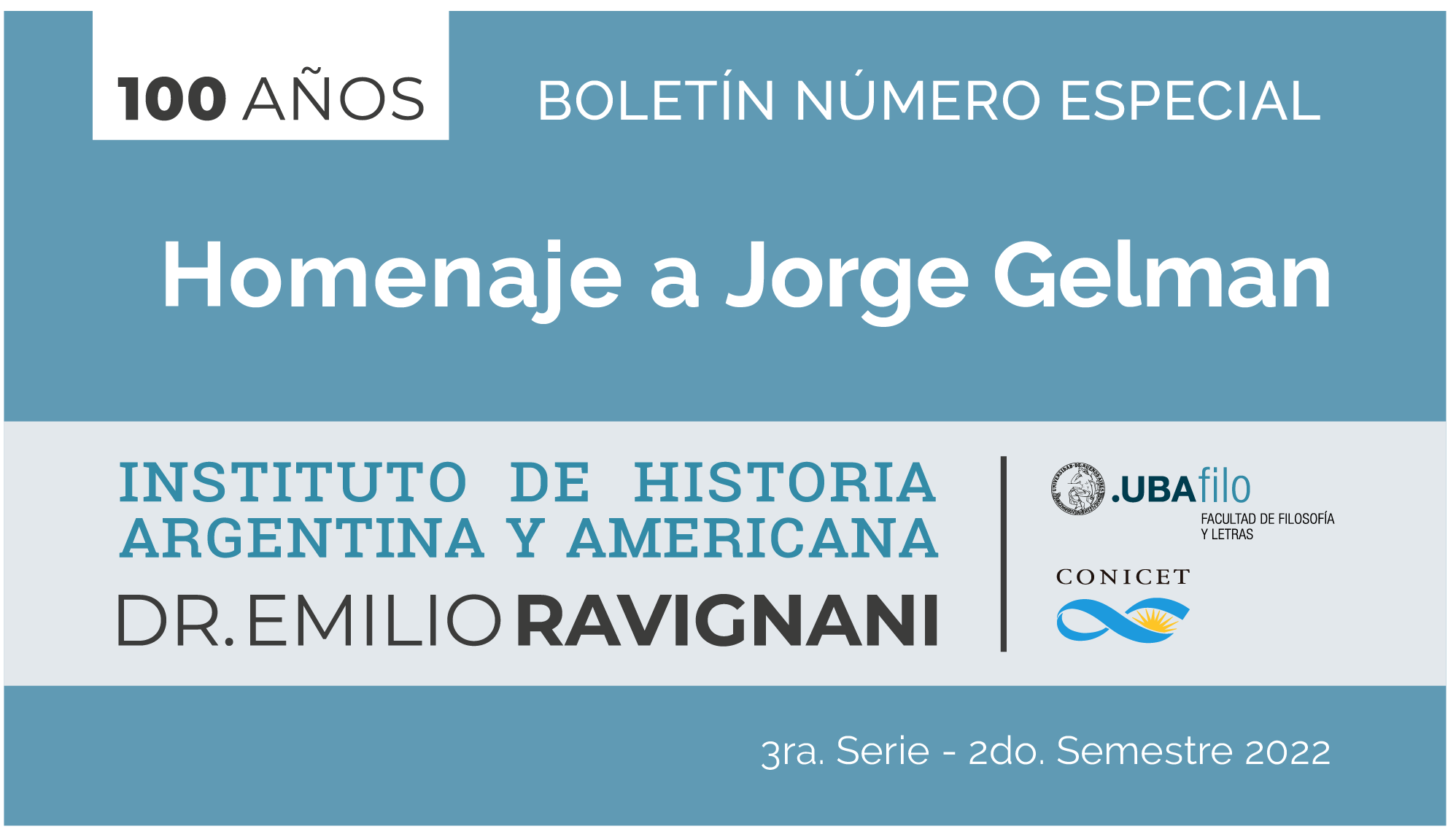De la historia rural a la desigualdad y la pobreza Tras las huellas de Jorge Gelman
Resumen
El texto recorre los aportes fundamentales de Jorge Gelman a la historia económica argentina, desde sus estudios sobre el mundo rural hasta los últimos desarrollados sobre la desigualdad.Descargas
Citas
Barrán, J. P. y Nahum, B. (1964). Historia rural del Uruguay moderno. Tomos I a VII. Montevideo: Banda Oriental.
Fradkin, R. (2006). Caminos abiertos en la pampa. Dos décadas de renovación de la historia rural rioplatense desde mediados del siglo XVIII a mediados del siglo XIX. En Gelman, J. (Comp.), La historia económica argentina en la encrucijada. Balances y perspectivas. Buenos Aires: Prometeo.
Gelman, J. (1998). Campesinos y estancieros. Una región del Río de la Plata a fines de la época colonial. Buenos Aires: Editorial Los Libros del Riel.
Gelman, J. (Comp.) (2006). La historia económica argentina en la encrucijada, Balances y perspectivas. Buenos Aires: Prometeo.
Gelman, J. (Comp.) (2011). El mapa de la desigualdad en la Argentina del siglo XIX. Rosario: Prohistoria.
Santilli, D. (2017). La saga continúa: la historiografía rural de la campaña de Buenos Aires en la primera mitad del siglo XIX. En S. Bandieri y S. Fernández (Coords.), La Historia Argentina en perspectiva local y regional. Nuevas miradas para viejos problemas, Tomo 1. Buenos Aires: Teseo.
Derechos de autor 2022 Boletín del Instituto de Historia Argentina y Americana Dr. Emilio Ravignani

Esta obra está bajo licencia internacional Creative Commons Reconocimiento-NoComercial 4.0.
Los derechos de autor son cedidos al Boletín, pero los autores podrán recuperarlos y reproducir su trabajo en otros medios o formatos mediante una solicitud por escrito al Comité Editor. En esos casos, se citará al Boletín como primera publicación del trabajo.
Las obras quedan licenciadas bajo una Licencia Creative Commons Atribución-No Comercial 4.0 Internacional, que permite a otros compartir el trabajo con un reconocimiento de su autoría y la publicación inicial en esta revista.
También, mediando solicitud por escrito al Comité Editor del Boletín, los autores pueden establecer por separado acuerdos adicionales para la distribución no exclusiva de la versión de la obra publicada en esta revista (por ejemplo, situarlo en un repositorio institucional o publicarlo en un libro), con un reconocimiento de su publicación inicial aquí. No se permiten usos comerciales.



















